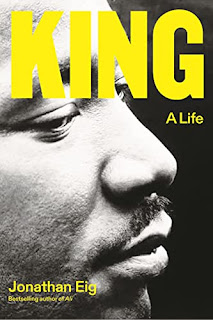 |
| Photo by Liz Lauren/Goodman Theatre |
If you asked me to start naming Shakespeare plays off the top of my head, I think I would avail myself pretty well.
There’s “Hamlet,” of course, and “Othello,” “Macbeth” and “King Lear,” “Romeo and Juliet” (telling that I would start with the tragedies — I’m a sucker for tragedy).
What else? The histories — “Richard II,” “Richard III,” “Henry IV” (parts 1 and 2), “Henry V,” “Julius Caesar.” And the comedies — my least favorite category — “As You Like It,” “Two Gentlemen of Verona,” “Taming of the Shrew,” “A Midsummer Night’s Dream,” “Twelfth Night,” “The Merchant of Venice,” which nobody thinks of as a comedy, anymore, but was originally intended to be.
And then the obscure plays — “Titus Andronicus” and “Timon of Athens” and such.
I could probably scrape up a few more, but you get the idea. The point I’m crawling toward is that I’m familiar with Shakespeare, and have seen his plays by the dozens, going back to Cleveland’s Great Lakes Shakespeare Festival, up to the American Players Theatre in Wisconsin, to our own underappreciated Chicago Shakespeare Theater at Navy Pier. Yet, despite this familiarity, until a few weeks ago I could have squinched my eyes and listed plays until I turned blue and never gotten to “Measure for Measure.” I hope that doesn’t make you think less of me. Before the Goodman Theatre announced it was putting on the play — it opens this Monday — I never heard about it, never thought about it and even hours before going to a preview Thursday, didn’t have the foggiest what it is about.
“What is it about?” my wife asked, as we got ready to go, with perhaps a bit of what-am-I-getting-myself-into dread.
“A bit with a dog and love triumphant,” I guessed, quoting “Shakespeare in Love.”
Completely wrong.
Which means I had the benefit of seeing the play as a complete blank slate, expecting nothing, knowing nothing, and in my ideal world you’d set this column down right now and go see it, solely on my recommendation, then finish reading this, the way I at times rush to Hedy Weiss to explain what I’ve seen.
Not exactly a spoiler alert — I’m not the spoiler sort. But even knowing a shock is coming lessens the shock; you expect it.
And with this new production, there will be many moments when you think, “So, is THIS the shock that so rattled Steinberg’s windows?” No, it’s not. Patience. It’s coming.
The shock of what happens onstage was magnified, for me, by the shock that I was shocked at all. I don’t do shock. Shock, like being offended, is for amateurs and the old.
Besides, we have learned to expect shock in plays directed by Robert Falls. Some consider that a flaw, but I find it invigorating. He peels the velvet glove off the iron fist of sex and horror that pulses through Shakespeare and then jams it, unpadded, into your face.
Thus Ophelia, hiking up her skirts and rubbing herself in his “Hamlet.” Thus Gloucester’s eyes not only plucked out — as the Bard intended — but ending up sizzling on a restaurant line grill in “King Lear,” the whole thing set in a dissolving Eastern Europe dictatorship, the opening scene spoken by characters standing at urinals, doing their business, their backs to the audience.
That was tights and ruffs and declaiming “Mary Had a Little Lamb” on a bare stage with one hand folded atop another compared to the opening minutes of Falls’ “Measure for Measure,” a Boschian, neon-lit hellscape, half “Taxi Driver,” half Ed Paschke’s early work come to life, a loud, dirty, overwhelming set piece (“Did you see that guy masturbating?” my wife asked, on the drive home. “No,” I said, “I was focusing on the stripper.”)
Falls always shocks other people — the groundlings, the timid, the life-averse, those whose idea of tragedy is Bambi’s mother dying. Me, I collect Bob Falls shocks the way a lepidopterist collects butterflies — with zeal and appreciation: This is the stuff that upsets others but I find magnificent; a shock, yes, but in a good way, your shirt ripped open, the paddles applied and the tired old heart given a revivifying jolt, part of Falls’ lifelong rescue of Shakespeare from the rolled R crowd, returning it the alive thing it was meant to be.
But this shock is truly shocking — a lady at the after-play conversation Thursday described it as “grotesque” and I didn’t argue with her. I’m not saying Falls was wrong. He’s right. It took me a while to see it. Not until the next morning, really, when I realized that, as the shock unfolded, my mind formed an alternate narrative — where I thought he was going — that was trite, ordinary and banal.
—Originally published in the Sun-Times, March 17, 2013







